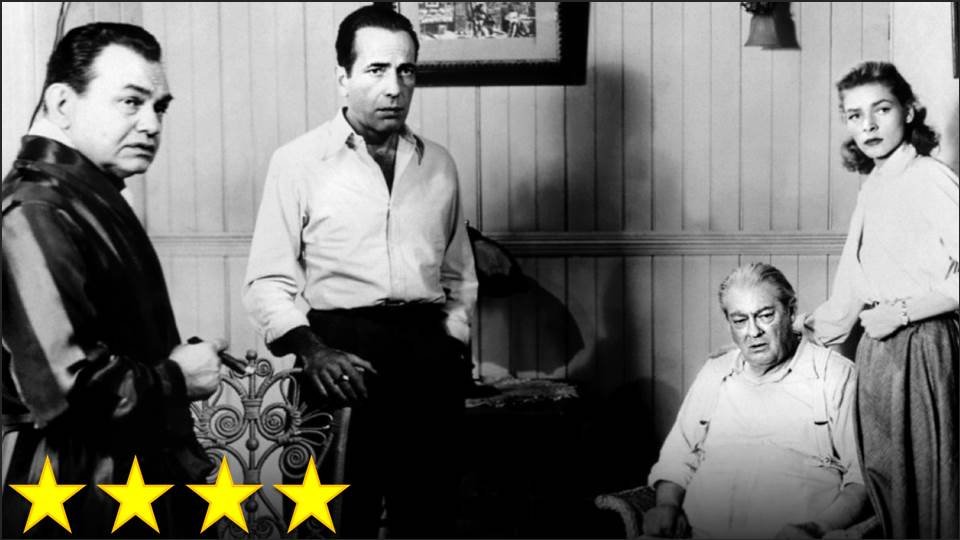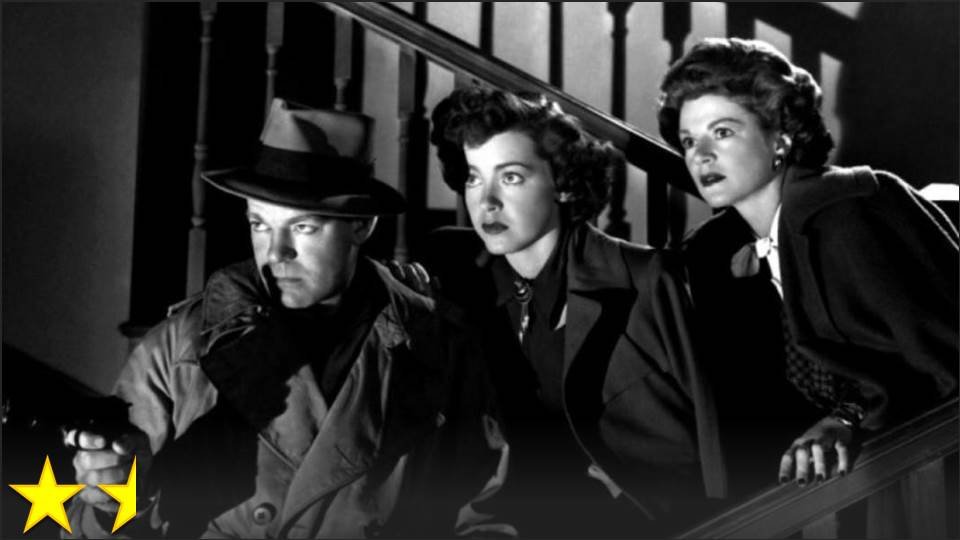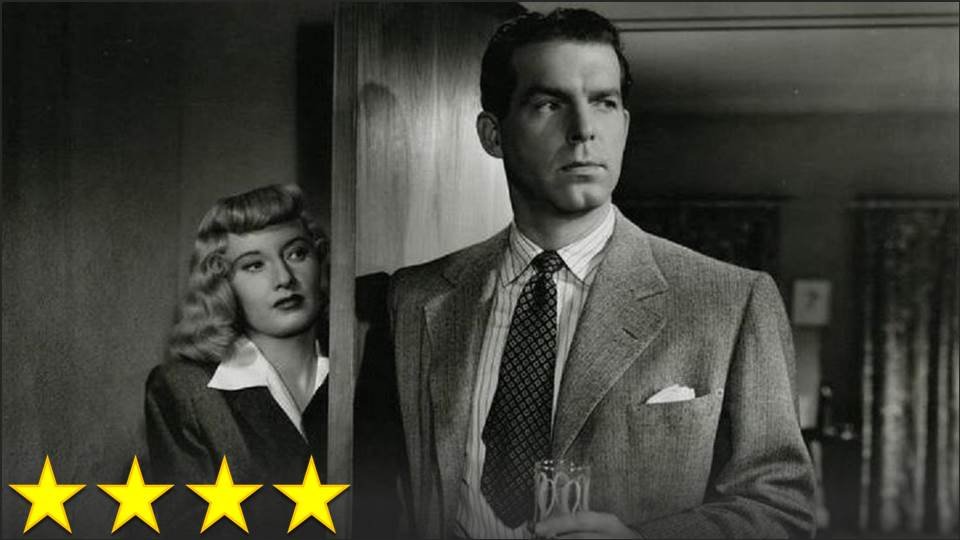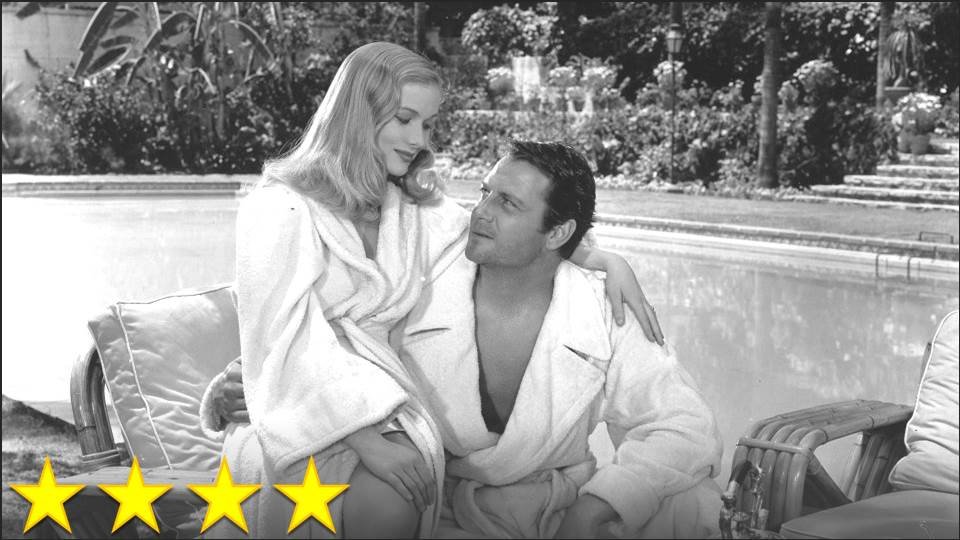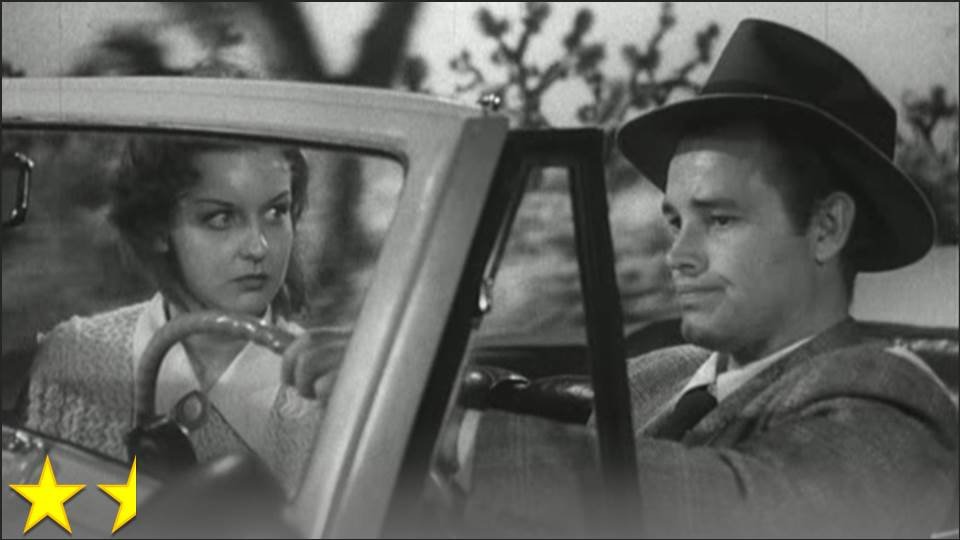This film is essentially “Film Noir’s Greatest Hits.” It has Humphrey Bogart and Lauren Bacall in leading roles, sharing the spotlight with a wealthy mob boss played in the most Edward-G.-Robinsony way possible by none other than Edward G. Robinson. In a supporting role is Claire Trevor of Murder, My Sweet and Raw Deal, and one of Robinson’s main gangsters is played by Dan Seymour, whom some may remember as Capitaine Renard from To Have and Have Not. Character actor Marc Lawrence – Cobby in The Asphalt Jungle – also makes an enjoyable appearance, so the gang’s all here. The film is as claustrophobic, dramatic, and violent as anyone could want from a film noir, with a satisfying sense of witty cynicism. That being said, there are a few ways in which this stands out from the usual film noir stereotypes.
Most films noirs – and most films in general – change locations, but this story is about people who are stuck in one building for the whole movie. The particular location the film chooses is particularly odd: it’s in a hotel on the beach in Key Largo, which is radically different from the general consensus that film noir concerns urban settings. The movie cleverly uses this to its advantage, employing a hurricane to amp up the usual noir trope of heightening drama with rain by making the rain more intense and to take out the building’s electricity. The power outage serves as both another way to create anxiety among the cast, which feels very noir, and as a great excuse for making the lighting more extreme. The result is a lighting style that is more expressionistic than any shadows I’ve seen in any film noir since Stranger on the Third Floor, and it’s absolutely delightful. It’s also very different for a film noir to avoid themes of male anxieties about women completely (or, in other words, to avoid a femme fatale or similar type), and Lauren Bacall seems almost out-of-place in her “loving, devoted wife” role.
While I think some parts of the film, such as the Bogart-Bacall romance, could have been more interesting than they are, I do think this is one of the greatest films noirs I have ever seen, and perhaps one of the greatest films I’ve seen at all.
